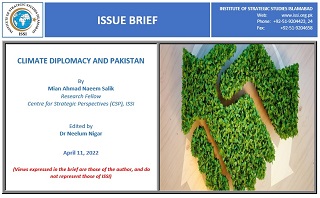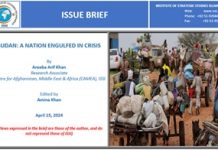The climate crisis is one of the greatest challenges of the 21st century with huge geopolitical consequences for the global world. Greenhouse gas emissions have already increased temperatures and are drying up water sources, rising sea levels, and threatening lives and livelihoods around the world. Extreme weather events; intense rain, dangerous storms, prolonged droughts, deadly heat waves, and uncontrollable wildfires, are becoming more frequent and more severe. The challenges posed by the climate crisis are enormous. The repercussions not only threaten people’s livelihoods and impair development but raise important geopolitical questions that touch upon the heart of international politics: sovereignty, territorial integrity, and access to resources such as water, food, and energy. The climate crisis has the potential to cause significant and highly uncertain impacts on societies, undermining human security and increasing the risks of conflict and instability. Addressing them requires a global-level strategic and coordinated response. This is where climate diplomacy comes in.[1]
Climate diplomacy encompasses the use of diplomatic tools to support the ambition and functioning of the international climate change regime and to attenuate the negative impacts climate change risks pose for peace, stability, and prosperity. Furthermore, it entails using the issue of climate change for furthering other foreign policy objectives such as confidence and peacebuilding or strengthening multilateralism. Climate diplomacy also calls for preparing appropriate risk assessment and risk management strategies at a global strategic level. This can be achieved through prioritizing climate action with partners worldwide, in diplomatic dialogues, public diplomacy, and external policy instruments.[2]















